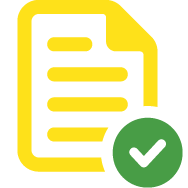
UO Transportation Plan
The University of Oregon Transportation Plan is a comprehensive long-term strategy aimed at enhancing accessibility, fostering campus vibrancy, and promoting sustainable travel options including walking, biking, and transit use. Our goal is to support safe and efficient travel needs while effectively coordinating development efforts with the surrounding community. The UO Transportation Plan will provide the university a long-range transportation capital project list, sustainable travel options, programs, and services that help campus meet its sustainability goals while best meeting the travel challenges and opportunities of tomorrow.
Working with a team of planning consultants and the university community, the University of Oregon Transportation Plan will serve as a tool to help establish a continuing framework to guide strategic growth and development. This plan focuses on promoting alternative transportation options, reducing single-occupancy vehicle trips, and enhancing pedestrian and bicycle infrastructure. By prioritizing walking, biking, public transit, and carpooling, the plan aims to reduce traffic congestion, improve air quality, and create a safer campus for everyone.
Key Features of Our Plan
- Multimodal Connectivity: Improve connections between different modes of transportation, making it easier for students, faculty, staff, and visitors to move around campus without relying on cars.
- Bike Friendly Campus: Design bike lanes, secure bike parking facilities, and bike-sharing programs, to support bicycling as a convenient and eco-friendly way to travel to, from, and around campus.
- Pedestrian Safety: Implement measures such as improved crosswalks, traffic calming techniques, and enhanced lighting to ensure the safety of pedestrians on campus.
- Parking Management: Incorporate innovative parking management strategies, including pricing incentives for carpooling and electric vehicle charging stations. Reduce the demand for parking spaces and promote sustainable transportation options.
- Transit Enhancements: Leverage partnerships with local transit agencies to enhance bus travel.
- Campus Green Initiatives: Create a more vibrant and inviting campus environment.
Project Updates
Throughout 2025, the project team conducted multiple community and partner outreach events to gather feedback and input on the Transportation Plan. In response to input received, UO Transportation Services has decided to initiate an Agate Street Corridor Study. The Agate Street Corridor Study will identify potential improvements to the corridor from 13th Avenue to 18th Avenue, including the size and type of walking, biking, and motor vehicle facilities to provide. The improvements identified in the Agate Street Corridor Study will be recommendations from UO for the City of Eugene to consider.
A key element of the Agate Street Corridor Plan is to determine what, if any, changes could be made to the traffic control at the 15th Avenue/Agate Street intersection that would benefit the safety of pedestrians and bicyclists and maintain or improve intersection operations for motor vehicles.
Timeline
The Transportation Plan will be completed in approximately 17 months, from January 2024 to December 2025. Throughout this process, the project team will regularly reach out to interested parties and key partners both on and off campus to gather and share information. At key milestones in the project, draft sections of the plan will be shared on the project website and opportunities for wider public engagement will be available.
These opportunities will be marked on the timeline below:
![]() Public Engagement Opportunity
Public Engagement Opportunity ![]() Draft Report
Draft Report ![]() Final Report
Final Report
January 2024 - October 2024
Review of Existing Conditions
- Data Collection
- Mapping Analysis
September 2024 - October 2024


Existing Conditions Report
- Online Mapping Tool & Survey
- Public Engagement
May 2024 - February 2025
Assess Future Needs
- Potential Growth Scenarios
- Future Conditions Assessment
January 2025

Future Conditions Draft Report
February 2025

Final Future Conditions Report
January 2025 - April 2025


Develop Project Recommendations
- Draft Project List
- Project Prioritization
- Funding Assessment
- Public Engagement
April 2025

Final Project List
Planning Level Cost Estimates
may 2025


Transportation Plan Document
- Draft Transportation Plan
- Public Engagement
December 2025

Final Transportation Plan
Contacts
Project Manager
Paul Comery, Transportation Planner, pcomery@uoregon.edu
UO Project Team
- Paula Ellison, Associate Director, Transportation Services, pellison@uoregon.edu
- Dave Reesor, Director, Transportation Services, dreesor@uoregon.edu
- James McGladrey, Assistant Director of Field Operations, jamesm@uoregon.edu
- Emily Eng, Director, Campus Planning, eeng@uoregon.edu
Consultant Team
Kittelson & Associates
- Phill Worth, Principal Planner
- Matt Kittelson, Associate Engineer
- Katie Popp, Engineering Associate
